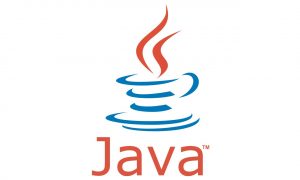Java 17, a Long-Term Support (LTS) release, brings several new features and enhancements to the Java platform. This tutorial will cover some of the key features introduced in Java 17, along with examples to illustrate their usage.
Table of Contents
- Sealed Classes
- Pattern Matching for Switch (Preview)
- Enhanced Pseudo-Random Number Generators
- New macOS Rendering Pipeline
- Context-Specific Deserialization Filters
- Deprecate the Applet API for Removal
- Other Enhancements
1. Sealed Classes
Sealed classes and interfaces restrict which other classes or interfaces may extend or implement them. This provides more control over the inheritance hierarchy.
Example
// Define a sealed class
public sealed class Shape permits Circle, Rectangle { }
// Define permitted subclasses
public final class Circle extends Shape {
double radius;
}
public final class Rectangle extends Shape {
double length, width;
}2. Pattern Matching for Switch (Preview)
Pattern matching for switch expressions and statements allows more concise and readable code.
Example
public class PatternMatchingSwitch {
public static void main(String[] args) {
Object obj = "Hello, Java 17";
// Use pattern matching in switch statement
switch (obj) {
case String s -> System.out.println("It's a string: " + s);
case Integer i -> System.out.println("It's an integer: " + i);
default -> System.out.println("Unknown type");
}
}
}
3. Enhanced Pseudo-Random Number Generators
Java 17 introduces new interfaces and implementations for pseudo-random number generators (PRNGs).
Example
import java.util.random.RandomGenerator;
import java.util.random.RandomGeneratorFactory;
public class RandomExample {
public static void main(String[] args) {
RandomGenerator rng = RandomGeneratorFactory.of("Xoshiro256PlusPlus").create();
// Generate random numbers
System.out.println("Random int: " + rng.nextInt());
System.out.println("Random double: " + rng.nextDouble());
}
}
4. New macOS Rendering Pipeline
Java 17 introduces a new rendering pipeline for macOS based on the Apple Metal API, enhancing performance and stability.
5. Context-Specific Deserialization Filters
This feature allows setting deserialization filters for specific contexts, enhancing security when deserializing objects.
Example
import java.io.*;
import java.util.*;
public class DeserializationFilterExample {
public static void main(String[] args) throws IOException, ClassNotFoundException {
// Set a filter
ObjectInputFilter filter = ObjectInputFilter.Config.createFilter("com.example.*;!*");
// Apply filter during deserialization
try (ObjectInputStream ois = new ObjectInputStream(new FileInputStream("object.data"))) {
ois.setObjectInputFilter(filter);
Object obj = ois.readObject();
System.out.println("Deserialized object: " + obj);
}
}
}6. Deprecate the Applet API for Removal
Java 17 deprecates the Applet API, preparing it for future removal due to the decline in browser support for Java applets.
7. Other Enhancements
Java 17 also includes various other enhancements, such as:
- Strong encapsulation of JDK internals by default.
- New methods in existing classes (e.g.,
java.nio.file.Files.mismatch). - Deprecation of
java.security.aclpackage for removal.
Example of Files.mismatch Method
import java.nio.file.*;
public class FilesMismatchExample {
public static void main(String[] args) throws IOException {
Path file1 = Path.of("file1.txt");
Path file2 = Path.of("file2.txt");
// Compare files and get the position of the first mismatch
long mismatch = Files.mismatch(file1, file2);
if (mismatch == -1) {
System.out.println("Files are identical");
} else {
System.out.println("Files mismatch at byte position: " + mismatch);
}
}
}


Conclusion
Java 17 brings several significant enhancements and features that improve the language’s expressiveness, performance, and security. This tutorial has covered some of the most notable new features with examples to help you get started. For a comprehensive list of all changes and enhancements, refer to the official Java 17 release notes.




